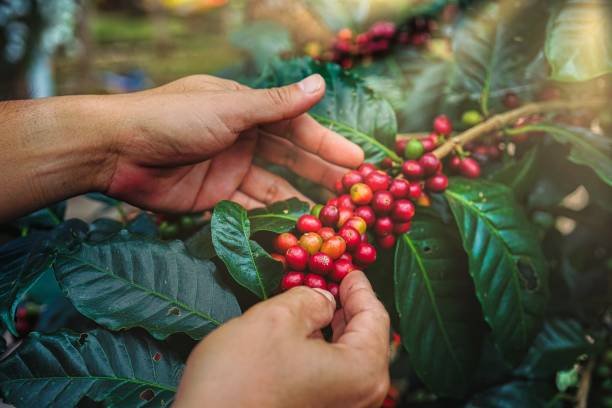The “pulped natural” or “honey” coffee processing method is a hybrid approach that combines elements of both dry (natural) and wet (washed) processing methods. This method allows some of the mucilage to remain on the beans during drying, providing a middle ground between the intense fruitiness of natural processing and the cleanliness of washed processing. Here is an overview of the pulped natural or honey coffee processing method:
- Harvesting: Coffee cherries are selectively handpicked when they are fully ripe.
- Depulping: The outer skin of the cherries is mechanically removed, exposing the beans covered with mucilage. The term “pulped natural” arises from the partial removal of the pulp, leaving a layer of mucilage on the beans.
- Sorting: The de-pulped beans are sorted to remove any debris or underripe cherries.
- Drying: The beans, still coated with mucilage, are spread out to dry. The drying process can take place on patios, raised beds, or drying tables. The mucilage on the beans contributes to the sweetness and complexity of the final cup.
- Turning and Raking: Throughout the drying process, the beans are turned regularly to ensure even drying and to prevent mold or fermentation issues. Some producers may also rake the beans to create airflow and promote uniform drying.
- Final Drying: Once the beans have reached the desired moisture content, they undergo a final drying phase to ensure stability for storage and transportation.
The degree to which the mucilage is left on the beans can vary, and different designations are used to indicate the level of mucilage remaining:
- Yellow Honey: Some mucilage is left on the beans, contributing to a medium level of sweetness and complexity.
- Red Honey: More mucilage is retained, resulting in a higher level of sweetness and potentially more pronounced fruit notes.
- Black Honey: The most mucilage is left on the beans, leading to a significant increase in sweetness and complexity. Black honey coffees are relatively rare and can have intense, syrupy flavors.
The pulped natural processing method is popular in countries such as Brazil, Costa Rica, El Salvador, and Honduras. The resulting coffees often exhibit a balance between the bright acidity of washed coffees and the fruity sweetness of natural processed coffees. The honey process allows for a range of flavor possibilities, making it an exciting option for coffee producers and enthusiasts alike.


